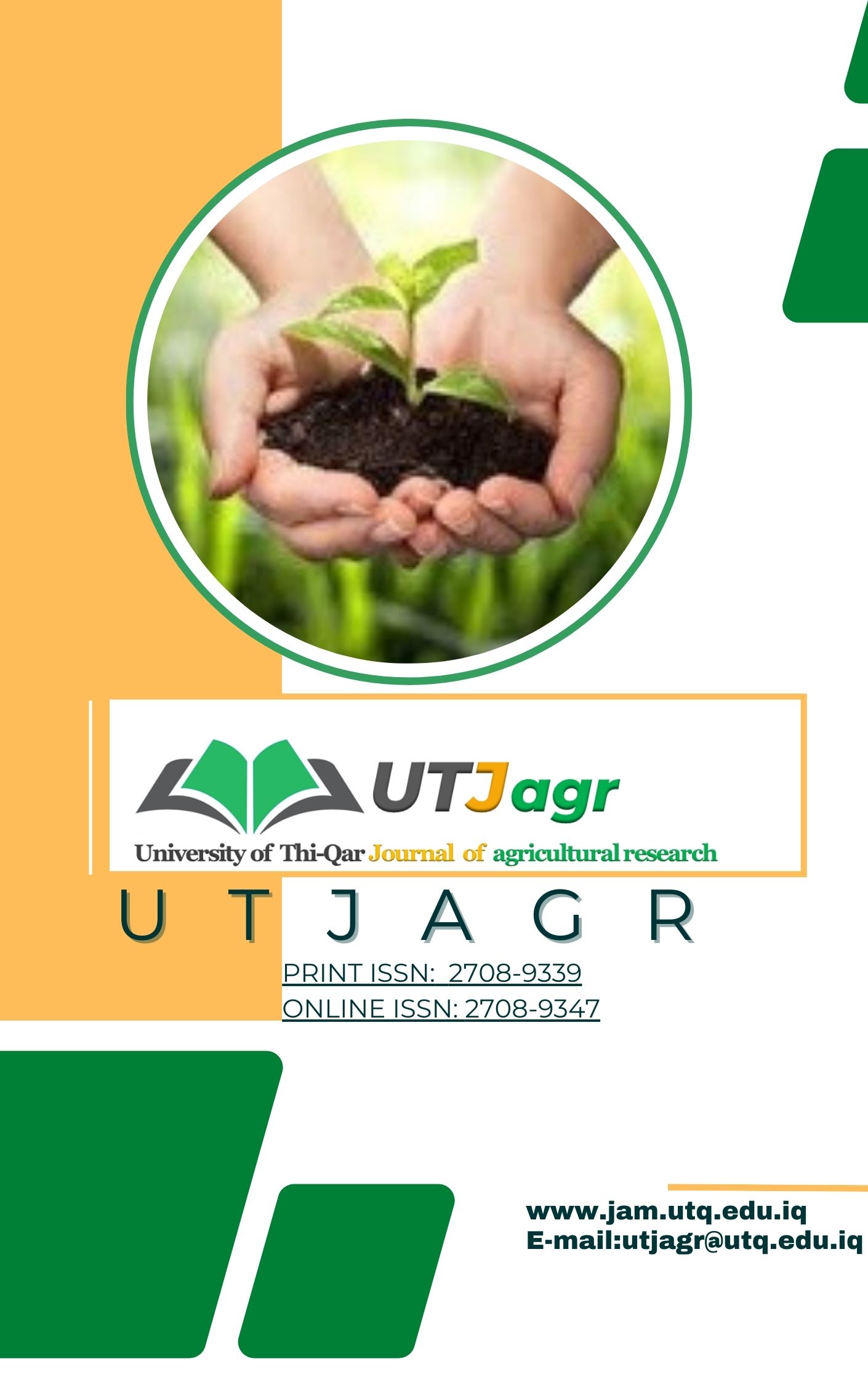Abstract
An experiment was carried out using pots in the plastic house of the Agricultural Research Station / College of Agriculture /
University of Basrah / Karma Ali site during the year 2022, to study the effect of adding mineral sulfur, organic matter,
leaching requirements, and salinity of irrigation water on soil salinity planted with maize plants. By using two types of organic
residuses (cow and alfalfa residuses) and with three levels of added mineral sulfur (0%, 0.8% and 1.6%) and three levels of
leaching requirements (15, 25 and 35%) in excess of the field capacity and two levels of irrigation water salinity ( 4 and 8 dSm
-
1
), where organic residues and mineral sulfur were added mixed with the surface layer of the study soil and incubated for 60
days before planting yellow corn (Zea mays L.) while maintaining soil moisture at field capacity. After the process of
incubating the soil with mineral sulfur and organic matter in pots, yellow corn seeds were sown with crop service operations
such as fertilization and irrigation operations carried out according to the above treatments. After 60 days of planting, the
plants were mowed to estimate soil salinity. And the end of the experiment. The results of the study showed that the addition of
organic residuses led to a decrease in the electrical conductivity of the soil at the end of the experiment from 6.11 dSm
-1
to 3.05
and 3.17 dSm
-1
for the alfalfa and cows respectively, and the decrease was more clear "in the alfalfa residuses , and the level of
leaching requirements exceeded 35% in reducing the electrical conductivity of the soil compared to the other two levels, to
reach 3.16 dSm
-1
, and the salinity of irrigation water 4 dSm
-1
excelled in reducing the electrical conductivity of the studied soil
to become 3.01 dSm
-1
, while the value of the electrical conductivity of the soil increased with the increase in the percentage of
addition of mineral sulfur to reach 2.58, 4.35, and 3.94 dSm
-1
for the levels of 0, 0.8, and 1.6%, respectively.
University of Basrah / Karma Ali site during the year 2022, to study the effect of adding mineral sulfur, organic matter,
leaching requirements, and salinity of irrigation water on soil salinity planted with maize plants. By using two types of organic
residuses (cow and alfalfa residuses) and with three levels of added mineral sulfur (0%, 0.8% and 1.6%) and three levels of
leaching requirements (15, 25 and 35%) in excess of the field capacity and two levels of irrigation water salinity ( 4 and 8 dSm
-
1
), where organic residues and mineral sulfur were added mixed with the surface layer of the study soil and incubated for 60
days before planting yellow corn (Zea mays L.) while maintaining soil moisture at field capacity. After the process of
incubating the soil with mineral sulfur and organic matter in pots, yellow corn seeds were sown with crop service operations
such as fertilization and irrigation operations carried out according to the above treatments. After 60 days of planting, the
plants were mowed to estimate soil salinity. And the end of the experiment. The results of the study showed that the addition of
organic residuses led to a decrease in the electrical conductivity of the soil at the end of the experiment from 6.11 dSm
-1
to 3.05
and 3.17 dSm
-1
for the alfalfa and cows respectively, and the decrease was more clear "in the alfalfa residuses , and the level of
leaching requirements exceeded 35% in reducing the electrical conductivity of the soil compared to the other two levels, to
reach 3.16 dSm
-1
, and the salinity of irrigation water 4 dSm
-1
excelled in reducing the electrical conductivity of the studied soil
to become 3.01 dSm
-1
, while the value of the electrical conductivity of the soil increased with the increase in the percentage of
addition of mineral sulfur to reach 2.58, 4.35, and 3.94 dSm
-1
for the levels of 0, 0.8, and 1.6%, respectively.
Keywords
leaching requirements
mineral sulfur
organic residues
salinity of irrigation water
